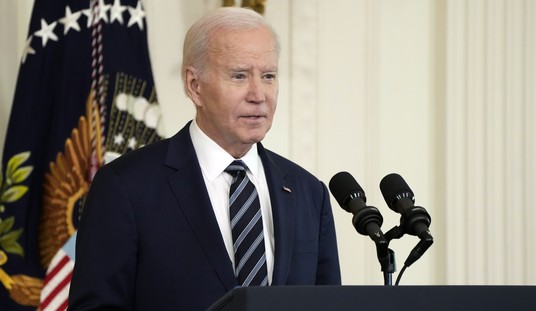In a New York Times OpEd (Sept. 4, 2012), Old Dominion political science professor Steve Yetiv poses the question: : “Is the Energy Boom a Mirage?”
Short answer: “Not no, but Hell, No!”
The United States is experiencing a boom in oil and natural gas production — one that many people, including Mitt Romney, see as a game-changing, tectonic shift in our energy picture. But while the boom is real, the benefits are less than meet the eye.
Then Dr. Yetiv ticks off his reasons why:
First, the boom would mean far more if America alone used its own oil resources. But oil is a global commodity. … And all of that extra American oil will be sold chiefly on global oil markets, not set aside for Americans.
Ahh. The “oil is fungible” argument. OK, so prices are set globally, but what about security of supply? Nobody can take away domestic production. And as the world’s #3 producing nation (with a bullet!), incremental production and technology gains in the U.S. enhance global supply, ultimately reducing prices.
Second, it follows that because oil is traded globally, … Americans would still be vulnerable to global events that raise the price of oil.
Again, in a supply emergency, physical control of the commodity is a lot more important than price.
Third, the energy boom probably won’t stop oil speculation — the purchase of oil futures to make a quick buck rather than to obtain oil. … The rub is that despite the domestic oil boom, speculators will still buy oil futures whenever they think oil prices will rise. Of course, extra American oil on the market might temper speculation under some conditions, but then again, it might not.
Would somebody please explain to me how speculation in a market causes the price to rise? The oil market is too big to corner. (I’ll have an upcoming post on the topic of speculation.)
Fourth, the Organization of the Petroleum Exporting Countries won’t sit by idly if America’s boom begins to hurt oil prices seriously. Its members will most likely agree to decrease their production to try to keep prices higher.
Supply vs price again. It should be apparent that OPEC would have less control of the market if the world’s #1 consuming nation becomes self-sufficient. Given the welfare-state obligations that many of the oil producing nations have assumed, can they cut back supply as easily as Dr. Yetiv suggests?
Fifth, a backlash against hydraulic fracturing, which can pollute water, is growing as Americans learn more about it.
Most of what they’re learning is disinformation, like “…hydraulic fracturing, which can pollute water …”. You hear that kind of stuff from moviemakers, entertainers and left-leaning college professors, but not from people who actually understand the process. Hydraulic fracturing in and of itself cannot pollute groundwater sources. Poor operating practices can threaten groundwater, but those mechanisms are well understood and within the current regulatory scope of the states.
Dr. Yetiv mostly ignores the benefits of natural gas:
Use of America’s abundant natural gas can also offset reliance on dirtier coal. … But let’s not exaggerate what the energy boom can do for the United States and American consumers. … And finally, a boom in fossil fuels is hardly something to celebrate, given the urgency of climate change.
Cheaper shale boom gas leads to cheaper utility rates. That puts spending money in consumers’ pockets. Gas has displaced coal as the #1 electricity generation fuel; without even focusing on CO2 reduction as a goal, the increased use of gas has led to the lowest national CO2 output since 1992.
While Dr. Yetiv separates the issues of price and supply, he completely misses another key benefit of an active domestic energy industry: jobs. The energy boom is one of the bright spots of our economy; just consider the ongoing booms in North Dakota and South Texas.
The energy business can be a prosperity engine for our economy, if we let it. To that end, here is my priority ranking:
- Supply – for strategic security reasons
- Economic stimulus – lots of good jobs and personal income to landowners, plus revenue streams at the local, state and federal level
- Consumer energy prices
My reasoning: If we have no energy supply and no jobs, who cares how much gasoline costs? On the other hand, if we have abundant supply, a growing economy and 3-4% unemployment, who cares how much gasoline costs?
For some reason we are way more sensitive to the price of gasoline than the price of food, education, insurance or health care. Dr. Yetiv’s OpEd focuses on our (in)ability to control price, mentions supply concerns in passing and is silent on the potential economic stimulus energy development represents. In the end he concludes that domestic energy development isn’t all that important. Sort of parallel to Administration policy, coincidentally.
The Democrats are still invested in climate change, but are loathe to utter its name at their Charlotte convention. Since Mitt Romney named domestic energy development as the centerpiece of his program to revitalize our economy, they must pooh-pooh energy’s promise as a “mirage” with benefits that “are less than meet the eye”.
This reminds me of our President’s famous utterance, “Don’t call my bluff.” Well, Mr. Obama, I believe that Mr. Romney has called your energy bluff, and Mitt holds the winning hand.
Cross-posted at my blog.














Join the conversation as a VIP Member